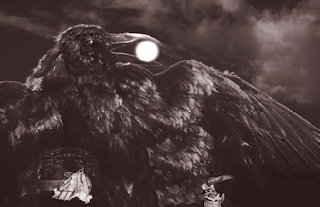 Of your nature reduced so low? But, above all, are there no dangers attending this mode of treatment? Are you not hourly in dread of an insurrection? Nor would it be surprising; for when
Of your nature reduced so low? But, above all, are there no dangers attending this mode of treatment? Are you not hourly in dread of an insurrection? Nor would it be surprising; for whenNo peace is given To us enslav'd, but custody severe,
And stripes and arbitrary punishment
Inflicted. Wbat peace can we return?
But to our power, hostility and hate;
Untam'd reluctance, and revenge, though slow.
Yet ever plotting how the conqueror least
May reap his conquest, and may least rejoice
In doing what we most ill suffering feel.'
But by changing your conduct, and treating your slaves as men, every cause of fear would be banished. They would be faithful, honest, intelligent, and vigorous; and peace, prosperity, and happiness would attend you.
Equiano, Olaudah. "The Atlantic Voyage". 1995. March 2008
By the Student,
This narrative was originally experienced on board of a slave vessel going to America by one of the slaves who did not know English, did not know the other passengers, could not read or write, and had little idea of what was going on. Because of all the trauma that this eleven-year-old experienced, the feelings stuck with him throughout life until he was able to write it down many years later with the same vivid descriptions and the feel ofblooming hatred for his new masters who, he writes, "looked and acted, as I thought, in so savage a manner; for I had never seen among any people such instances of brutal cruelty."
The above quote shows irony because the white men thought of the blacks as savage beasts themselves, which was their reasoning for going to enslave them. Meanwhile the black people think of the whites as cruel because they beat everyone in sight, including each other and enslave helpless, clueless people.
The tone of this selection is disgust at the white men. He can not fathom why they are so cruel, but expect the slaves to bend under the beating and loss of self without hatred towards the new masters.
The lack of mention of the Christian religion or anything of that sort sharply contrasts to the normal Puritan writings of this time. This probably upset some white men at the time, but was also probably largely ignored by the American public in the 18th century because it was simply something people did not want to believe happened.
By a White Sailor,
Them negros! We try to make there livs better and they jest complan and wont eat! The nerv of them they want to dye while we break are backs for them.
one of are slaves tranlats for us and says that they think were dirdy and disgusting well look at them! i beat the one hu said that and he is in scrubing the deck now its good for him so he nos his place later and dont get hurt worse.
they chant somtimes and i dont like it it make me nervos like there planing somthing.
Essential Question,
The import of slaves previously almost untouched by Puritan religion provides a sharp contrast to the culture that has been fermenting in the new country, bringing with them the potential for a war later in history and and a new culture that can not seem to mesh with the god-fearing Puritans. In the passage above, Equiano presents a rather different view of slavery, one that the average citizen of the New World was unaware of, and one which shows the white man as the brutal and uncivilized race as they are cruel and dirty. Although every first-generation slave was exposed to this, their masters generally were not keen on teaching them to write and no publisher in his right mind would print a book saying how white men were evil compared to slaves! Not yet, anyways...Equiano says that the slaves would be willing to work if they were just treated as men instead of dogs. Unfortunately the Puritans have been brainwashing each other for many years and can't understand the voice of reason, even if it does care to adapt and learn their language and culture. Black slaves coming over from Africa unwillingly give up their own freedom so that the Puritans may become more sucessful, although this develops a huge wall of hatred between the two as black people string to break free from the crazies who have abducted them.


 In this poem, the speaker goes from asking God of he can be the parts of the sewing machine to the speaker being the yarn for a robe to the speaker wearing the robe made out of the components of his soul for all eternity in heaven.
In this poem, the speaker goes from asking God of he can be the parts of the sewing machine to the speaker being the yarn for a robe to the speaker wearing the robe made out of the components of his soul for all eternity in heaven.




